joe montemurro
Arsenal Women, 2017-2021
I’ll be honest with you. When I first saw the email, I thought it was a scam.
I’d had a call from an agent to say there was a club that had been monitoring my work at Melbourne City. They wouldn’t tell me who the team was, though.
Then the email came. The subject line said the club was Arsenal Women. I showed it to my wife.
“Shall I open it?” I asked her. I thought it was going to end up asking me to put money in some bank account.
I opened it, and it turned out to be the real deal. I couldn’t believe it. My boyhood team had got in touch to ask me to manage them.
It all happened very quickly after that. Before I knew it, I was on a flight to England to take charge of Arsenal Women.
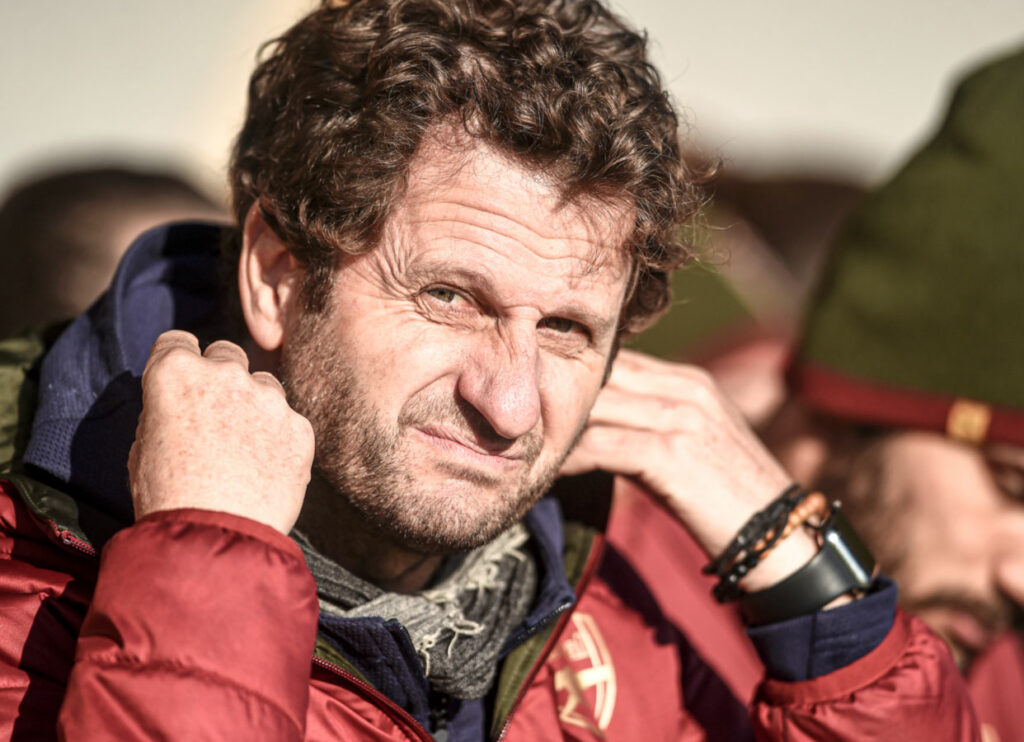
I’d followed Arsenal for years, going right back to when I was a kid.
It’s my brother’s fault that I’m an Arsenal fan.
He loved Charlie George (below). I don’t know why exactly, but he was just obsessed with him and that Arsenal team of the early 1970s.
I remember when I was about six or seven, he came home one day and told me: “You’re an Arsenal fan now.”
It was a really exciting era for English football, and Arsenal were doing quite well at the time, too. It was easy to get into football and Arsenal.
"i would go to a cinema with my uncle to watch 38mm reels of serie a games"
Growing up in Australia, though, football – or soccer – wasn’t anywhere near as accessible as it is in England.
We had Match of the Day really late on a Saturday night, so I had to pretend to go to bed and then sneak out to watch it with my brother, just to get a peek at the old Division One. There were also really bad-quality snippets of the German Bundesliga on TV, too. Often, they were three or four weeks after the football had actually happened.
Football was way down the pecking order in Australia. It was seen as a migrant sport, really, played among the Italian, Greek, eastern European, Scottish and English communities.
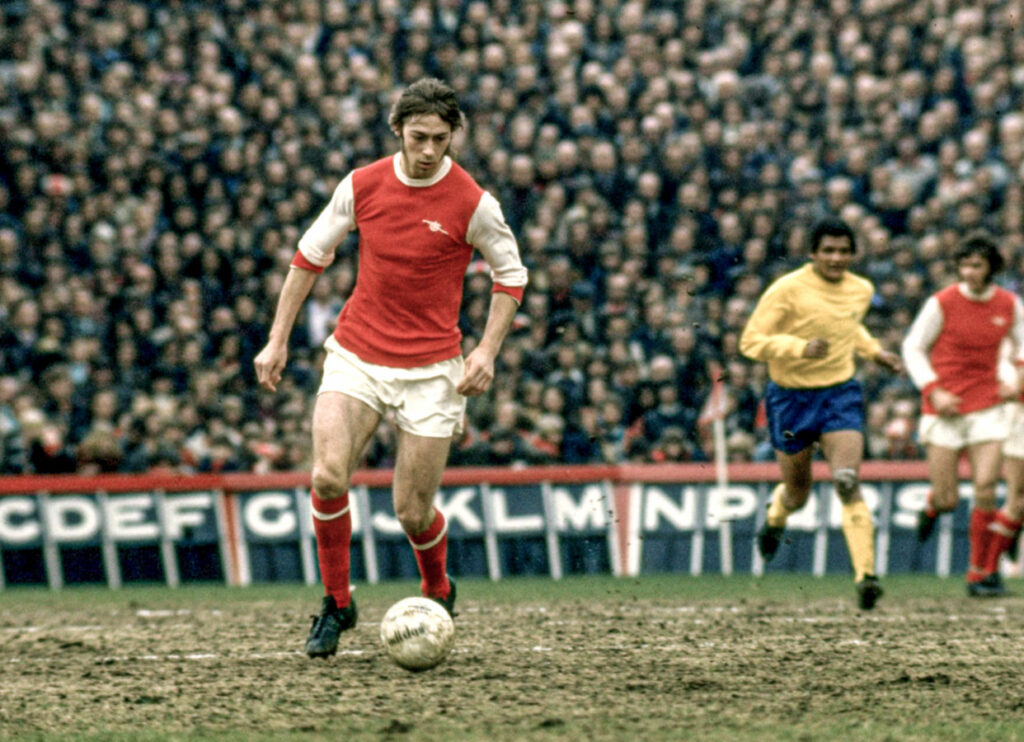
My parents moved from Italy to Australia before I was born, and football was very much in my family. That meant I searched out football in Australia.
I would go with my uncle to a cinema in an Italian quarter of Melbourne to watch 38mm reels of Serie A games.
Cricket and rugby were the main sports played in the schools, and football was called all sorts of derogatory names. It was hard to play football back when I was growing up there.
You couldn’t even go into a sports store and find footballs or football boots. It was always an afterthought.
But all the challenges that came with it only made it more special when I did get to play or watch it. That’s what festered my passion for the game.
"from a young age, i was fascinated by patterns and the tactical side of the game"
It was the 1978 World Cup in Argentina – which came around when I was eight – that properly cemented my love for football.
We got little bits of the tournament fed through to Australia, and I remember being really taken by the scale of it all. The passion on everyone’s faces was immense. Something clicked in me. I knew from then on that I wanted to go into football.
I set about finding a club to play for, and my Italian heritage attracted me to Melbourne Juventus. The Italian Juventus (below) had been another of my childhood teams.
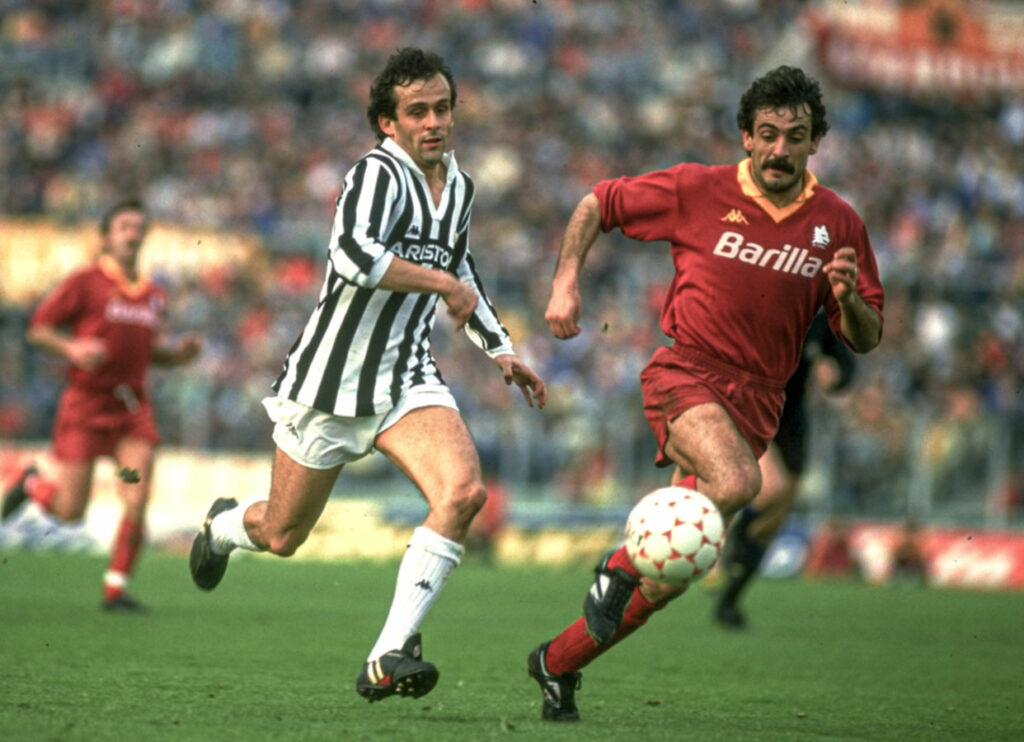
I found from a young age that I was looking at the game in a different way to a lot of my peers. I was fascinated by the patterns and the tactical side of the game, and what makes a team tick.
Coaching was always where I was headed.
I spent a bit of time trying to make it as a player, including in Europe with Treviso in Italy, but when I came back to Australia around the age of 28, I got stuck into coaching.
Coaching opportunities in Australia were very rare. The game was tinkering on the edge of semi-professionalism, and jobs were hard to come by.
Not having a past as a player made it even more difficult for me to find a job, but I understood very early that the journey was going to take me in all sorts of different directions before I was going to get where I wanted to go.
"i saw there were different learning processes and coaching methods in the women's game"
I wanted to educate myself. I did a lot of youth coaching, studied psychology and looked at other sports: how they structured sessions; how they ran their teams; their processes.
But I had a family at the time, and had to pay the mortgage, so there was a four or five-year period where I was working four different jobs. I would be up to take a session before school from 6am to 8am, then head to another school for an 11am session, then work for some federation programmes in the afternoon, before an evening club session later on. And that was seven days a week.
That was normal at the time. It was how I made ends meet, but I don’t regret the challenges that growing up in Australia brought me in my aims of making it in football. I learned so much doing all those jobs, and that was so important to my development.
The only problem was that I couldn’t get any work in a professional environment. The only clubs I was getting work with were semi-pro. I wanted to experience professional football.
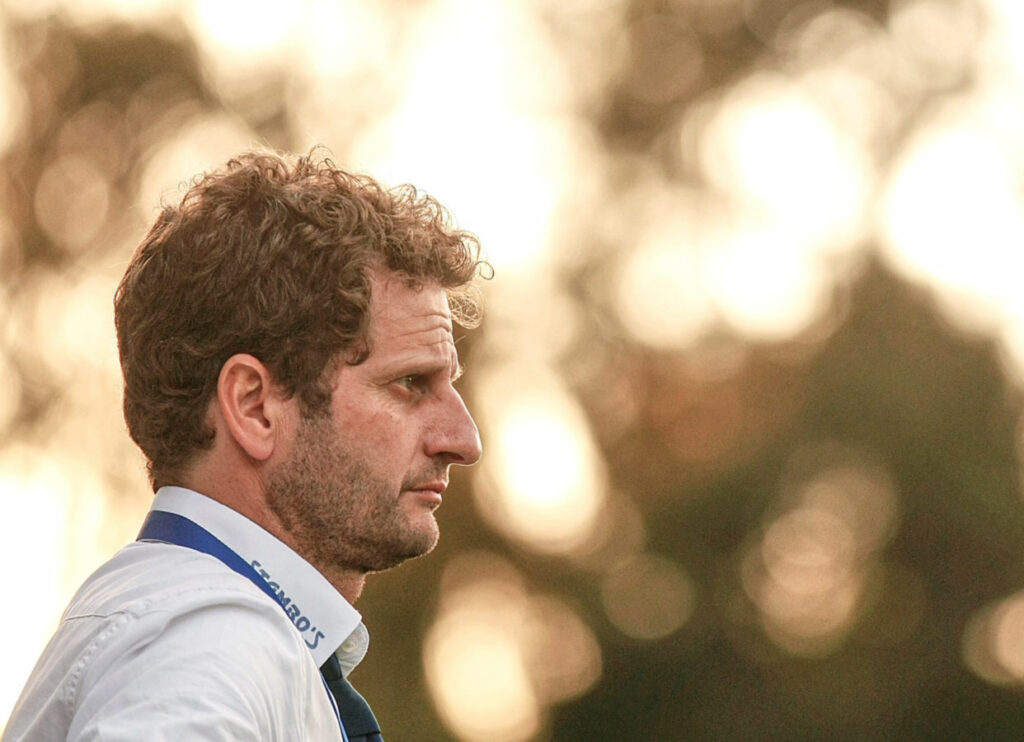
I got the opportunity to run the full-time youth programme at one of the regional football associations, and through that I was able to start working in women’s football.
At first, I didn’t see many differences, but I soon saw there were different learning processes and coaching methods in the women’s game, and that made me grow as a coach. It was then in the women’s game that I started making real strides.
I got the chance to go to Melbourne Victory (above), where I enjoyed a good deal of success, and after that I went to Melbourne City. They had just joined the W-League, so I had to build a team from scratch.
I was there for a couple of years and did well. Little did I know, though, there was a club close to my heart keeping an eye on me from afar.
"in simple terms, i think the club had rested on its laurels"
That was when I got the email from Arsenal.
It was a dream come true to manage them.
When I joined, Arsenal weren’t having as successful a time as they had had a few years before. They won every Women’s Premier League and Super League title from 2004 to 2012. That’s nine titles in a row.
When I came in in November 2017, they had gone five years without winning the league. There had been a few cup wins in that time, but winning the title was almost a distant memory compared to the success that had come earlier.
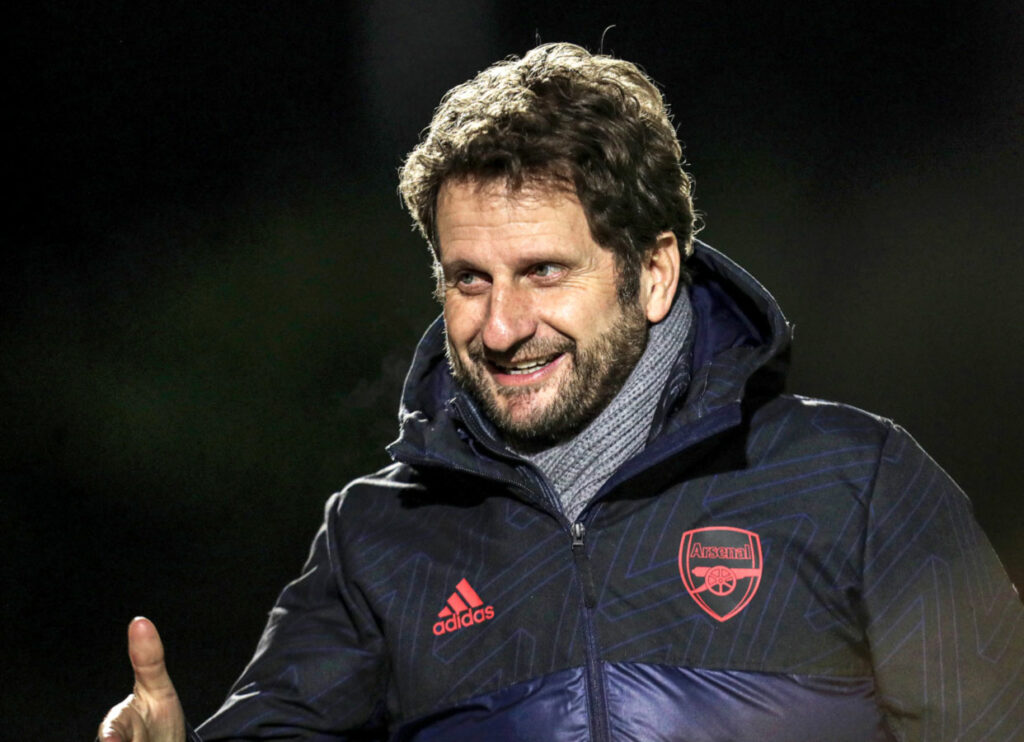
When I went in, I thought it was important to understand where the club had come from, and where it found itself now.
In simple terms, I think they had rested on their laurels a little bit. They had been happy with what they had done historically, rather than looking at the changing scope of the game.
At that time, there was rapid and vast change happening in women’s football. Clubs were investing heavily. Arsenal were in danger of being left behind.
I didn’t want to go in there with ‘the Joe Montemurro way’ or anything like that. I decided we needed a new methodology, but it had to be linked to the club’s values. It was important to embrace what it meant to put on an Arsenal shirt and what it meant to play the Arsenal way.
We wanted to play a proactive, attractive brand of football. That’s what Arsenal means to the rest of the world.
"our targets were focused on what we could do with the ball, not winning trophies or games"
I’m a great admirer of Arsène Wenger and what he did to transform the Arsenal men’s team, and what he did very much influenced my thinking when it came to deciding what I wanted my Arsenal team to be. The women’s and the men’s teams are both part of the Arsenal brand.
What Arsène did was totally unique. He transformed the mentality of English football, and to see that happen was incredible. I wanted to instil a mentality with the women’s team that fit with his ‘Arsenal way’.
Our targets were focused on what we could do with the ball. We took the focus away from winning trophies and winning games – instead, I wanted the players to succeed at doing what I wanted them to do on the pitch. They then had a base methodology to work with, and the aim was to get them doing the things I wanted them to do with the ball. Winning would come from there.
We wanted to control the game when we had the ball, and be proactive when we were defending. That way we would feel in control then, too.
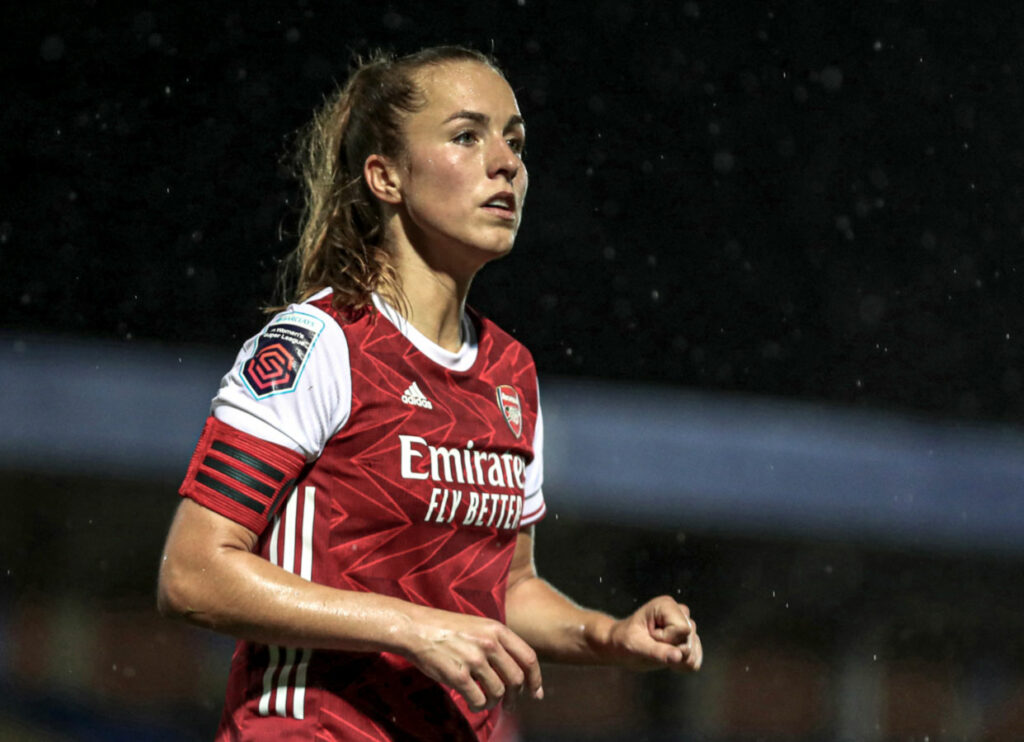
We laid the foundations in the 2017/18 season, and that stabilised the team. The players did what I asked of them, and the results followed.
We made the players believe again, and in March 2018 we won the League Cup.
I noticed something in the players change after that. Once we’d added a few players over the summer, even with Chelsea and Manchester City investing heavily again, I felt like we had what it takes to challenge in the league again. I really believed in this team.
Bringing in Lia Wälti (above) was huge for us, and she quickly became a key player. In Kim Little, Beth Mead and Vivianne Miedema, we had three brilliant attacking players, and they were good enough that we were able to contend with losing Jordan Nobbs – a crucial member of the team – to an ACL injury. Leah Williamson was flourishing at the time, and Dominique Janssen was really important, too.
"to get arsenal back to the top was a greater reward than any individual accolade"
We had a harmony among the players that meant it just worked. We clicked. Things started to get really exciting.
We became the first ever Women’s Super League team to win nine consecutive games. People were recognising and praising the attractive, Arsenal-style football we were playing.
We had a fantastic season and dominated the league. Then, in front of a record crowd against Brighton in April, we secured the title (below) – Arsenal’s first since 2012.
I was so happy for the players and the staff, but it was the fans I was most happy for. They were used to winning, but hadn’t tasted this kind of win in a long time.
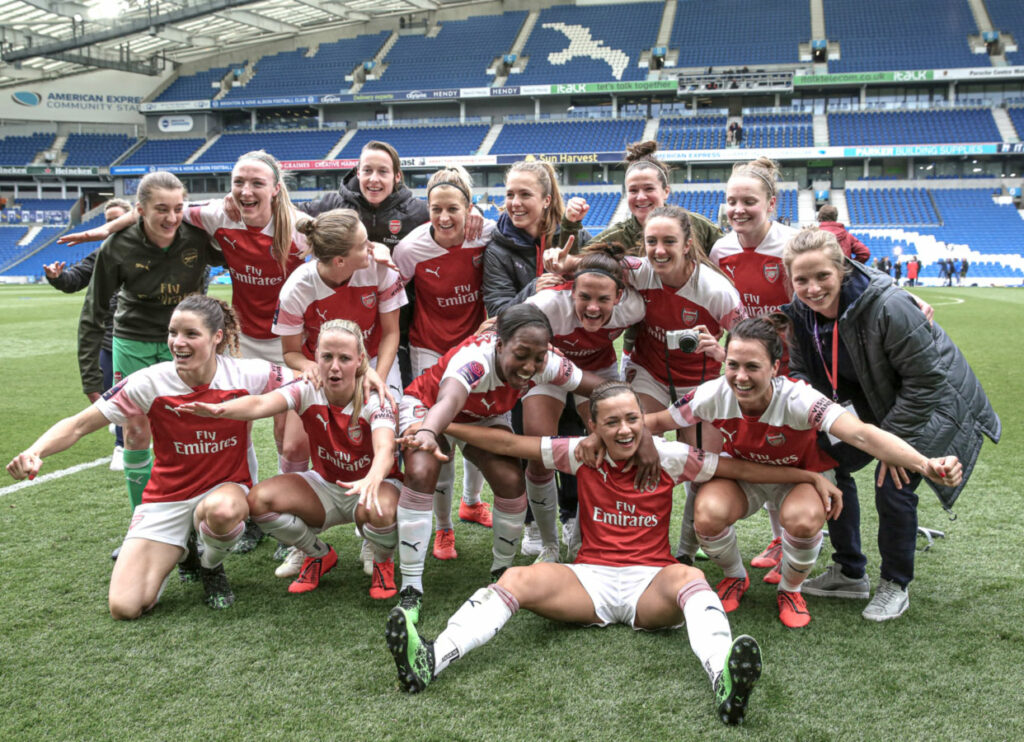
Looking back, we did a lot of work behind the scenes to get Arsenal back to where they belonged. There was so much going on that I maybe didn’t enjoy that title win enough as I should have.
I got individual accolades and nominations, including a nomination for FIFA Best Coach. They were nice, but my rewards are on the park. Seeing something you’ve worked on in training come out on the pitch is an amazing feeling. And there was plenty of that in that successful 2018/19 season.
To get Arsenal, my team, back to the top of the English game – and back competing with the best teams in Europe, in the Champions League – is a far greater reward than any individual accolade.
"juventus gave me a chance to get my family back together"
Over my four years at Arsenal, I was away from my family for extended periods, and that took its toll. I can’t quite explain what it was, but in 2021 I had a gut feeling that it was time to move on.
My mind and my body were tired, and I’d got the team to where I wanted to take them. Even though it was incredibly difficult to leave, it felt right.
The intention was to take a little bit of time off, to take a break from the game, because I had been going for nine years without any real chance to refresh.
But then I had some offers, and one was just too good to turn down.
Juventus wanted me.
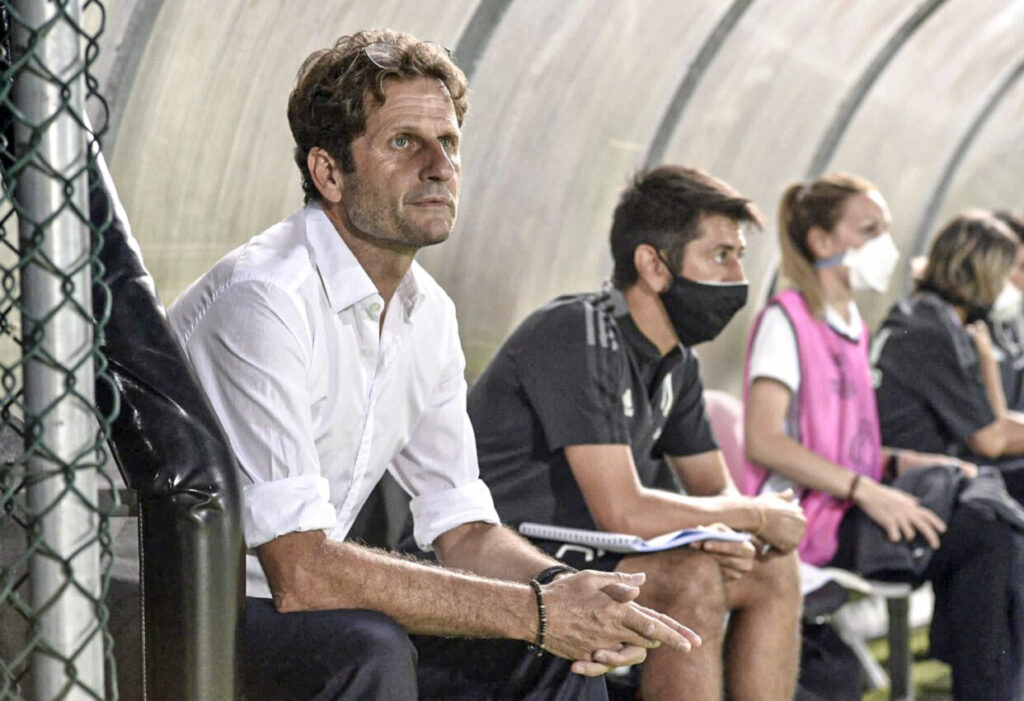
It was a new adventure, and one that filled me with excitement. It was another of my childhood clubs, a chance to get my family back together – and also to be closer to my extended family, many of whom are still in Italy.
From day one there, I had the club motto very clearly pressed upon me. “Winning isn’t everything; it’s the only thing.”
Juventus are winners. They want to be the best. Being at the club, you can see why they are so successful.
The women’s team was only founded in 2017, but they won the Serie A title in each of their first four seasons in existence.
"the unexpected, unpredictable bits are what give me the passion i have for the game"
Under me, the aim is to continue to dominate domestically, but also to set our sights on competing in Europe.
There are different pressures to those I have faced previously, but the kind of football I promoted at Arsenal – which is part of me – is what the owners want to see. I feel confident in my ability to provide what they want.
I’m privileged, and very lucky, to have been able to manage at my two childhood clubs. I often feel like I am living a dream.
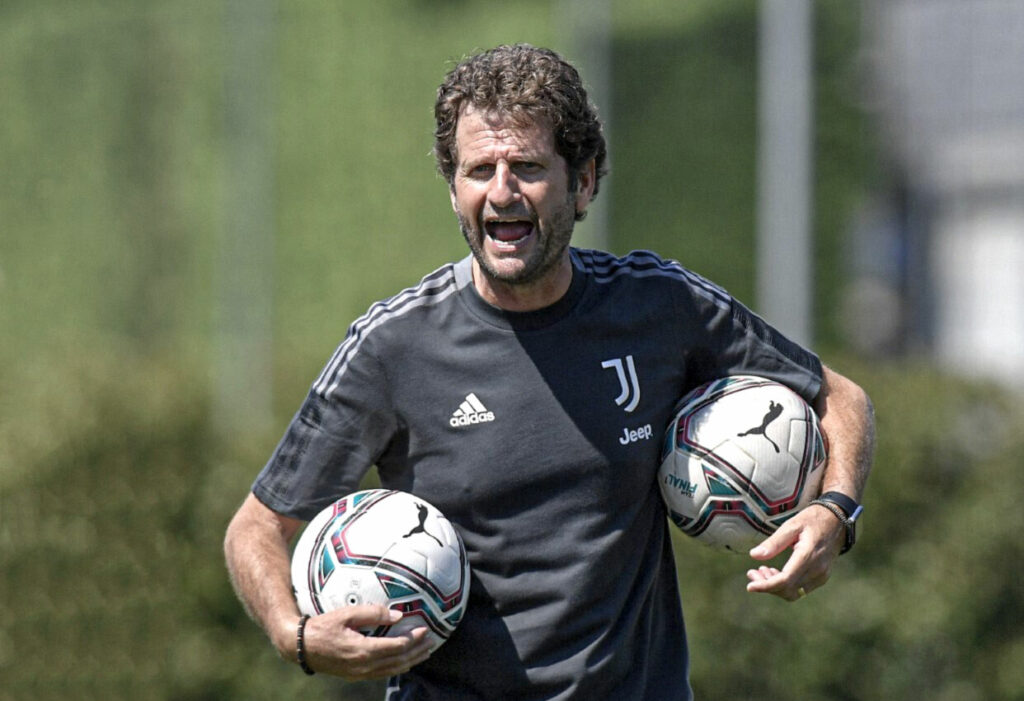
Just to be in this wonderful game is amazing. We try to find ways to control matches, but the unexpected, unpredictable bits are what gives me the passion and love for the game that I have.
As long as I’m part of it, there will be a smile on my face.

joe montemurro


